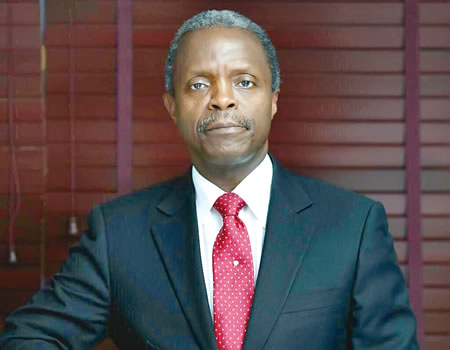
VICE President Yemi Osinbajo has launched the Patient Bill of Rights which he said is a significant contribution in establishing one of the most important rights of all humanity: the right to life in which inheres the right to adequate healthcare.
Speaking at the ceremony at the Banquet Hall of the Presidential Villa, Abuja on Tuesday, he said the initiative was to set and commit to a new standard that both acknowledges and commits to uphold some of the most fundamental principles of our common humanity.
Vice President Osinbajo noted that the deference to the supremacy of human dignity is the responsibility not only of medical personnel, but everyone in the healthcare value chain: government, regulators, insurers, administrators, family and/or primary caregivers, and even the final consumer.
According to him, mutual respect helps ensure that interactions build confidence, enhance care and improve outcomes.
Osinbajo stated that the Patient Bill of Rights is a remarkable effort at consensus and common purpose, in the face of the many challenges of our health care system in Nigeria.
He added: “It cuts out the noise and distractions, and focuses on what is truly most important: putting people first. It serves as a code of accountability, constantly reminding us of the primary purpose of the healthcare system, and of the obligations of every player and stakeholder in that system. It helps clarify consumers’ expectations of providers and the providers’ responsibilities to consumers.
“In terms of policy and funding, we, as a government, are acutely aware of the challenges of Nigeria’s health sector. And that is why we are single-mindedly pursuing the attainment of Universal Health Coverage for all Nigerians.”
Vice President Osinbajo observed that the Patient Bill of Rights is a very timely complement to these policy and funding interventions.
According to Osinbajo, “it will ensure that the increasing funding that is coming into healthcare in Nigeria translates into a direct improvement in the quality of the final output at what one might call the ‘last mile’ phase of healthcare delivery, the very personal arena of interaction between health personnel and the beneficiaries of the healthcare.”
He further said: “Indeed, health care is not merely about what we, as government put into it in terms of funding, equipment and so on; it is also about what the patient perceives that he or she is getting out of it. I would, in fact, argue that the latter may matter more than the former.”
Osinbajo affirmed that government’s aim is to develop a standard worthy of emulation, by ensuring strict compliance with and the enforcement of the Patient Bill of Rights.
ALSO READ: PDP NEC’s decisions that may alter the look of 2019
He said: “We must hold ourselves – professionals and patients – accountable to the rights that this document enunciates, and when we see others who should, but do not, we must insist that they do.
“For what this Bill embodies is potential. It is only by enforcing, and by ensuring sanctions in the face of failures of enforcement, that we can ensure that the potential is fully realized. Without realizing that potential, the Bill is reduced to a mere set of words worth no more than the paper on which it has been expressed. This is not the legacy that we seek”
Earlier in his welcome address, the Director General of the Consumer Protection Council, Mr. Babatunde Irukera, noted that there is an urgency to protect the rights and dignity of people in the country,
According to him, “ there is an emergent reason to ensure that citizens are lifted up from poverty, there is an unequivocal responsibility to humanize all, and pay particular attention to the most vulnerable.”
Vice President Osinbajo added: “Protecting rights in the healthcare sector is of particular importance, and is a defining feature of how society should, and must operate.
“The reason is not farfetched. Like I said earlier, needing medical attention is many times the most vulnerable or weakest point for both patient, and many times family.
“It necessarily connotes desperation, and a combination of these lead to significant impairment in decision making and exposure to abuse and exploitation.
“How people are treated at that time of need; through that process, including after it are features in measuring the quality and values of society and attention to our shared humanity.”



